



Are you considering getting dental implants for your missing teeth? This extraordinary therapy has the potential to give you a grin that is solid, long-lasting, and appears completely natural even after years have passed. It is essential that you schedule a consultation for dental implants in Summerlin at the outset of the process of replacing your missing teeth. The following is an outline of what you should anticipate happening during this very important appointment:
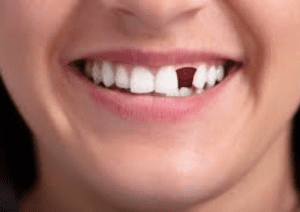
The vast majority of people are eligible for dental implants, but in order to acquire them, you must first satisfy some prerequisites and conditions. Your dental health will be evaluated by your Summerlin dentist so that he or she can establish whether or not your jawbone and gums are in good enough condition to sustain your new teeth. This evaluation might include the following:
It is not necessary for you to panic if you are not immediately qualified to acquire dental implants. After undergoing several preliminary treatments, it is possible that you will be able to qualify for the program. A bone transplant or treatment for gum disease may be necessary, for instance, in the preceding stages of implant placement surgery for some patients.
A Discussion Regarding Your Objectives and Predictions for the Future
If you have already done any study into dental implants, you most likely have a good understanding of the various procedures and technologies that may be utilized during the procedure. Be sure to bring up the subject with your dentist if there is a particular method of treatment — for instance, you might be inquisitive about the All-on-4 procedure — in which you are interested. 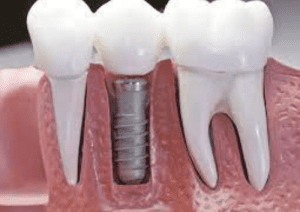 Being open and honest about the various financial factors is also very crucial. Dental implants are a fantastic investment, but the initial expense may be significantly higher than you anticipated.
Being open and honest about the various financial factors is also very crucial. Dental implants are a fantastic investment, but the initial expense may be significantly higher than you anticipated.
If you let your dental team know about any worries you have regarding your finances, they will have the opportunity to assist you in exploring all of the treatment alternatives that are available to you.
The Planning of the Particulars
After gathering information about your oral health and the outcomes you hope to achieve from treatment, your dentist will be able to begin planning the particulars of your care. It's possible that they'll talk to you about the following:
There is no reason to be concerned about the dental implant consultation you have scheduled; in all likelihood, it will make you feel enthusiastic about the path that lies ahead.
Meet the Practice
Dr. Marianne Cohan is a skilled and knowledgeable dentist who provides comprehensive treatment for dental implants from the initial consultation to the final restoration. Because she focuses such a strong emphasis on giving her patients individual attention, you can anticipate receiving care that is truly individualized from her. You can reach us at this number (702) 341-9160 if you have any questions about the procedures involved in the implantation of dental implants or about the tooth replacement choices that are available to you.
CLICK HERE TO SCHEDULE YOUR APPOINTMENT!
GET TO KNOW YOUR BEST DENTIST IN SUMMERLIN
Dr. Marianne Cohan was voted The Best Dentist/ Dental Office and Best Cosmetic Dentist from The Las Vegas Review-Journal in 2020 and 2021. She received her Doctor of Dental Surgery (DDS) from the State University of New York at Buffalo in 1992.

With an emphasis on cosmetic dentistry, complete makeovers, and implant dentistry, Dr. Cohan is committed to continuing education and feels that we never stop learning. Dr. Cohan takes pride in using high-powered magnification to perform minimally invasive restorative dentistry. She uses all the latest technological advances including digital radiography, digital photography, computer simulations, and high-resolution pictures of your proposed treatment on 55-inch screens. She also utilizes CBCT (cone beam) and laser technology.
Dr. Cohan is always available to her patients and is available for any dental emergency.
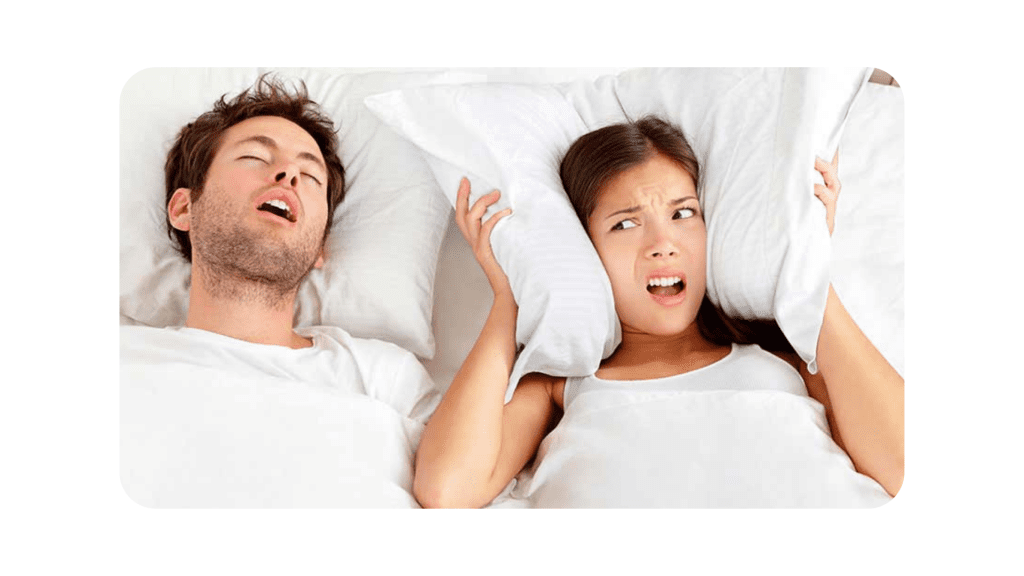
Snoring and Sleep Apnea. The importance of healthy breathing and restful sleep is increasingly being recognized in medical research. While there is still a great deal more to understand, it is now generally known that many significant biological processes take place during healthy sleep.
Some examples of these processes include the following:
Our bodies can function normally without food for roughly one to two months, but only for about three to four days at a time without water. How long would we go without breathing if we didn't do it? Imagine now that you are having an episode of choking many times each hour, hundreds of times each night, for a number of years.
When did it become acceptable for us to suffocate while we are sleeping? Today, more than one billion people suffer from episodes in their sleep that are comparable to drowning, and 85 percent of them are ignorant that they have this illness.
It is NOT natural for someone to pop and click their jaw joints, experience pain in their TMJ, snore or wake up gasping for air, breathe through their lips, and grind or clench their teeth. These behaviors should never be observed. These are indications that your body is struggling to get the air it needs and is entering a fight-or-flight phase, which can have a negative impact on your general health.
Why is it imperative to get at least eight hours of sleep each night?
The importance of healthy breathing and restful sleep is increasingly being recognized in medical research. While there is still a great deal more to understand, it is now generally known that many significant biological processes take place during healthy sleep. Some examples of these processes include the following:
• Normalization of brain function: A restful night's sleep enables neurons to rearrange themselves. While you are sleeping, the glymphatic system in your brain, which is responsible for water clearance, removes waste from the central nervous system. It rids your brain of the harmful byproducts that have accumulated there over the course of the day. When you wake up, your brain will be in a good position to function properly thanks to this. The consolidation of recent short-term memories into more permanent long-term memories is another way that sleep helps the memory.
• Weight control: Sleep has an effect on your weight by modulating the hormones that cause hunger. Certain hormones, such as ghrelin, which stimulates an increased appetite, and leptin, which stimulates an increased feeling of fullness after eating, have their levels regulated while a person is asleep. Ghrelin production is increased whereas leptin production is decreased when sleep quality is poor. Because of this imbalance, you may feel more hungry, which may increase the likelihood that you will consume more calories and gain weight.
• Maintaining normal insulin function: There is evidence from some studies that sleep may help prevent insulin resistance. It is possible for cells to process glucose in a more effective manner if their health is maintained. During sleep, glucose is used by the brain less frequently, which may assist the body in better regulating overall blood glucose levels. Insulin is a vital hormone that facilitates the conversion of glucose, sometimes known as sugar, into a form that can be utilized by your cells as a source of energy.
The inability of the cells to respond appropriately to insulin is caused by insulin resistance. Insulin resistance is a risk factor for developing high blood glucose levels, which can ultimately result in type 2 diabetes. A sufficient amount of quality sleep may, according to some research, reduce insulin resistance.
• The immune system: While you sleep, your body produces cytokines. Cytokines are a unique type of protein that defends the body against infection and inflammation. A decent night's sleep is necessary for the production of various antibodies and immunological cells. These chemicals eliminate disease-causing microbes, which contributes to the body's resistance against illness. Your body creates cytokines, which are vital proteins that combat infection and inflammation, while you are sleeping.
Cytokines are produced during sleep. When you are sick or under a lot of stress, getting enough sleep is very crucial. At these periods, the body requires an increased amount of immune cells as well as proteins. Your immune system may become stronger and healthier if you get enough quality sleep, which will allow your body to better fight off infections.

• Vitality of the heart: It has also been connected to risk factors that have an influence on overall heart health to sleep that is either disrupted or of poor quality. These conditions include high blood pressure, excessive activity of the sympathetic nervous system, and increased levels of the stress hormone cortisone.
• Emotional well-being: A good night's sleep is essential to maintaining emotional well-being. Certain parts of the brain are responsible for actively controlling emotions as well as supporting good brain function and emotional steadiness while an individual is asleep.
• The capacity of each cell in your body to repair and maintain itself is referred to as cellular restoration. This happens during deep, restful sleep. Cells are able to repair themselves and regrow when we sleep. During a restful night of sleep, the body completes a number of critical activities.
• Energy conservation: The energy conservation theory explains how our bodies are able to save energy while we sleep by allowing our bodies to lower the amount of calories they need to function properly.
What consequences do we face when our sleep needs go unmet?
Lack of sleep can have a detrimental effect on the function of every single cell and organ system in the body.
The recommended amount of sleep for an adult is between seven and eight hours per night. Sleep patterns that are disrupted or poor can lead to exhaustion, which in turn can lead to poor decision-making and an increased risk of accidents.
In addition, it is becoming increasingly apparent that a lack of sleep can contribute to a number of chronic health problems, including mortality at an earlier age.
Warning signs of chronic sleep deprivation include:
It should come as no surprise that the most exciting developments in dentistry are related to airways, given how much these innovations can enhance one's quality of life. The new frontier in dentistry is the study of how our mouth, teeth, and airways are connected to the rest of our bodies.
According to numerous studies, a major contributor to sleep apnea is our contemporary way of life. A limited amount of time spent breastfeeding, eating a diet high in soft foods, and having tongue and lip ties are just some of the factors that can contribute to underdeveloped jaws and narrow palates, which in turn can have an effect on our airways as well as our patterns of breathing and sleeping causing sleep apnea.
Orthodontic procedures that involve the extraction of teeth in order to make room are another major source of issues with the airway and breathing. It is possible that they will straighten the teeth, but they will also diminish the arc of the jaw and, as a result, the room for the tongue muscles. This will push everything toward the back of the mouth, which will reduce the airway.
More than eighty percent of people in today's society have undergone orthodontic treatment to straighten crooked or crowded teeth, and the vast majority of adults have had their wisdom teeth removed because their jaws did not develop normally enough to accommodate them.
Getting older, putting on weight, and having allergies are additional factors.
It is important to be aware that there are three different types of sleep apnea: central, obstructive, and mixed (a combination of the two). The most frequent type of sleep apnea is called obstructive sleep apnea, and it occurs when the airway becomes restricted, blocked, or floppy. The condition known as central sleep apnea happens when there is no obstruction of the airway during sleep, yet the brain nevertheless fails to instruct the respiratory muscles to breathe regularly.
Obstructive sleep apnea therapies

The use of CPAP machines, surgery, or mandibular advancement appliances has traditionally been the treatment of choice for obstructive sleep apnea (OSA). However, these treatments only address the symptoms of the condition and do not address the underlying cause, which can actually make the condition worse over time.
Laser therapy is a terrific new alternative for many different conditions, as it is a non-invasive treatment that does not require any devices or anesthesia and produces effects almost immediately. It does this by stimulating the formation of collagen and decreasing the tissue on the back of the mouth and the tongue, which in turn reduces snoring and opens up the airway. It has a lifespan of approximately one year and can be reapply whenever it is required.
The good news is that we are now able to treat the underlying cause of OSA sleep apnea in both children and adults using innovative technologies and a multidisciplinary approach. This strategy includes chiropractors, myofunctional therapists, sleep doctors, and ENT (ear, nose, and throat) specialists. The symptoms of sleep apnea can be reduced or eliminated entirely if the craniofacial structure is slowly expanded while also being remodeled.
This is achieved by the use of a patented piece of equipment. The majority of patients report that they feel the effects of the treatment within the first few days or weeks, and it is non-invasive, practically undetectable, and painless. To make matters even better, once therapy is finished, obstructive sleep apnea treatment for many people is no longer necessary.
We are only now beginning to understand sleep apnea and how the way we breathe impacts our health and what we can do to enhance it. The recent COVID-19 outbreak has brought to light the importance of taking a holistic approach to dental care, which can ultimately result in a longer and better life.
Being healthy is more vital than it has ever been, and a capable ally in the pursuit of this goal is your dentist.
Do you suspect that you might be suffering from sleep apnea? Make an appointment with the best dentist near me at Summerlin Dental Solutions now to get treatment and a better night's sleep.
CLICK HERE TO SCHEDULE YOUR APPOINTMENT!
GET TO KNOW YOUR BEST DENTIST IN SUMMERLIN
Dr. Marianne Cohan was voted The Best Dentist/ Dental Office and Best Cosmetic Dentist from The Las Vegas Review-Journal in 2020 and 2021. She received her Doctor of Dental Surgery (DDS) from the State University of New York at Buffalo in 1992.

With an emphasis on cosmetic dentistry, complete makeovers, and implant dentistry, Dr. Cohan is committed to continuing education and feels that we never stop learning. Dr. Cohan takes pride in using high-powered magnification to perform minimally invasive restorative dentistry. She uses all the latest technological advances including digital radiography, digital photography, computer simulations, and high-resolution pictures of your proposed treatment on 55-inch screens. She also utilizes CBCT (cone beam) and laser technology.
Dr. Cohan is always available to her patients and is available for any dental emergency.
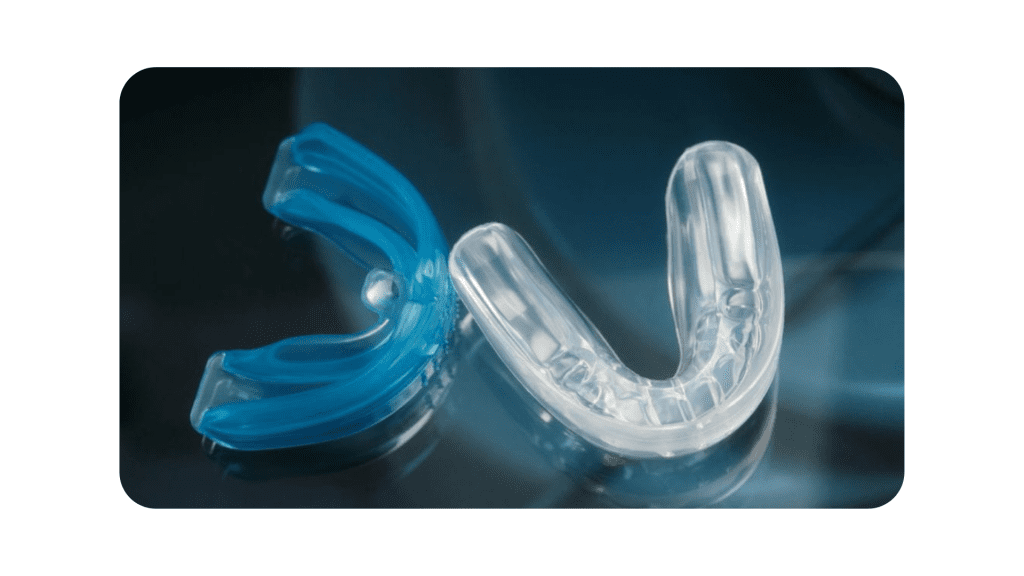
Have you ever questioned whether or not you really require a mouthguard to protect your teeth? If that's the case, then you should definitely read this article before making your next appointment with the dentist.
Do not be concerned in the least if you do not know what questions to ask. You are by no means the only one dealing with this issue, particularly if you are not familiar with mouthguards or night-guards.
Mouthguards are designed to protect your teeth and gums from injury, and contrary to popular belief, they are more effective in doing so than you might initially believe. While you are using the device, you can experience some initial and transient discomfort; nevertheless, the benefits to your oral health make the slight inconvenience more than worthwhile.
It's possible that you're confused about the function of a mouthguard and why certain individuals need to wear them. The following is a rundown of the fundamental information you need to have before selecting the mouthguard that will serve you best.
Your grin will end up being preserved in all of its glory along with its health and protection.
When you play sports, it is important to protect your teeth with a dental appliance called a mouthguard. If you clench and grind your teeth as you sleep, you could benefit from wearing one of these.
In either case, mouthguards perform admirably when they are customized to fit the unique contours of a person's teeth and mouth. There are some that come in regular sizes, while others offer personalized fits; in addition, they can be constructed from a variety of materials.
The distinction between dentures and mouthguards is one that is frequently confused by people. Although they share a similar appearance, their functions couldn't be more different.
Dentures are artificial teeth that can be worn in place of missing teeth, and mouthguards are designed to prevent tooth loss in those who wear them.
Mouthguards are normally made of a formable plastic that can be molded to fit the mouth of any individual, and they are also compact enough to be carried around and used as necessary. As a result, it is imperative that you do not misplace your mouthguard.
Who should consider wearing a mouthguard?
It is highly suggested that anybody who participates in a sport that involves physical contact use a mouthguard. In point of fact, you might not have a choice but to put one on.
No matter what kind of activity you participate in, your health and safety should always come first. This pertains to both the physical and dental health of the individual. An injury to the mouth or gum line can result in the loss of teeth and/or heavy bleeding, and if the damage is serious, oral surgery may be required as an emergency procedure.
In addition to protecting your teeth during contact sports, mouthguards can also be worn during activities such as riding a bike, skating, or other recreational activities that have the potential to cause an injury to the mouth.
Mouthguards, also known as nightguards, are an excellent solution for people who suffer from sleep apnea or grind their teeth while sleeping.
What are the many kinds of mouthguards available?
There are three primary categories of mouthguards, which are as follows:
Here is some information to help you better understand each type and determine which one could be the most suitable for you.
Stock Mouth Protectors.
These mouthguards are the least priced choice and may be found in a wide variety of sporting goods retailers. They are also easily accessible.
They are available in a variety of sizes, but the catch is that they cannot be customized in any way and only provide the most fundamental level of protection. They may be available in a variety of colors, but the fit is predetermined and cannot be altered in any way.
Boil-and-bite Guards
This particular kind of mouthguard may be adjusted to fit the contours of your mouth in a matter of minutes. It also comes in a variety of sizes that are determined by the state of your mouth and teeth, but this type may be modified to fit your specific needs.
The procedure for fitting is rather uncomplicated. To break in the new mouthguard, you submerge it in a pot of boiling water for a few minutes. The next step is to put the material in your mouth while it is still hot, and to press the plastic against your teeth while doing so.
As soon as the protector has returned to its normal temperature, it will keep its form, and you will then be able to begin practicing on the field.
Custom Fitted Mouthguard
It's possible that you've observed that the mouthguards that some elite sportsmen use have interesting shapes. These are made to order in order to provide the highest level of mouth protection possible.
However, the use of this kind of protection is not necessary limited to professionals alone. Additionally, they are excellent for those who have braces or if a dentist determines that you need mouth protection for whatever reason.
For instance, if you've recently undergone oral surgery, there will be a critical juncture in your recovery during which you'll be especially susceptible to sustaining further damage to your teeth. Those who are at a high risk of sustaining an injury to their mouth may benefit from wearing a custom-made mouth protector. Despite the fact that these protectors can be quite expensive and need to be fitted by a dentist, they provide enough protection.
How exactly do mouthguards accomplish their job?

A common misconception concerning mouthguards is the idea that they offer unrivaled defense against damage to the teeth and gums. However, despite their usefulness, mouthguards do not provide the same level of defense as other forms of protection.
Damage to the mouth caused by a severe blow to the face or head can be disastrous and may necessitate more than one surgical procedure. It is possible for mouthguards to lessen the likelihood of oral injury, but they cannot eliminate the possibility totally.
Even injuries that don't appear to be too serious can cause significant problems for the mouth. If you ignore the problem, even something as minor as a chipped tooth could result in an infection, a deepening of cavities, and additional harm. Damage to a tooth that results in an abscess is another urgent condition that can arise.
A mouthguard's secondary function is to maintain proper alignment and placement of all of the teeth within the mouth. Teeth have the potential to splinter and cut the gums or the roof of the mouth if a mouthguard is not used. You also run the risk of swallowing the broken parts of a tooth by unintentionally.
Mouth injuries pose the greatest threat, as they can result in permanent disfigurement if they are severe enough. In the event that you sustain a serious damage to your mouth, it has the potential to change your appearance for the rest of your life. In the worst-case situation, this type of oral trauma might potentially cause damage to the nerves.
If you engage in strenuous physical activity, it is strongly recommended that you use a mouthguard rather than risking injury to your teeth and gums by not using one.
If you wear a night guard, would it damage your teeth?
Another common misunderstanding is that wearing a sleep guard will make your teeth worse rather than better. Night-guards are a type of mouthguard that is worn at night, and their primary function is to protect teeth from being damaged while the wearer is asleep. It is significantly more likely that you will damage your teeth if you do not use a night guard when it is required.
When you grind your teeth as you sleep, the outer surfaces of your teeth become worn down, which can lead to damage over time. At some point in the future, the teeth might break, chip, or develop a cavity.
This misunderstanding originates from the fact that night guards can cause gradual shifts in the position of teeth over time. In point of fact, this is the reason why a lot of dentists utilize them. When we are younger and our mouths are still developing, this is an effective method for realigning our teeth.
If you use a night guard, you could notice that grooves are beginning to appear in your teeth. It's not a problem with the mouthguard's functionality. It is more likely that the guard does not fit properly, in which case you ought to have it checked out by your dentist.
What kind of maintenance does a mouthguard require?
The encouraging news is that mouthguards can be cleaned with relative ease.
You can rinse it out with regular mouthwash or with water that has been soapy, whichever you prefer. The use of cold water is required for this approach since hot water has the potential to change the contour of the guard over time.
It is in your best interest to keep your equipment away from areas that are subject to extreme heat or direct sunshine.
If you do need to transport your mouthguard, however, you should store it in a container that is both compact and robust so that you do not risk accidently harming it.
When not in use, a mouthguard made of acrylic should be stored in water to prevent it from drying out. In the event that this does not occur, the materials will be harmed, and the price of purchasing an acrylic mouthguard will have been for naught.
How long do mouthguards typically remain effective?
If you take proper care of your mouth guards, they should last you for a very long time. However, whenever you begin to see signs of wear and tear, it is highly recommended that you replace them with a new set.
You should search for regions in which the guard is no longer fitting as snugly over your teeth as it did in the past. When you first obtain a mouthguard, it may not feel as comfortable as it does later, once you have been accustomed to wearing it in your mouth for longer and longer lengths of time.
It is imperative that you never keep using a broken mouth protector since you run the risk of causing damage to your teeth. If you take the necessary precautions to maintain it, a quality mouth guard should last for several months, unless your dentist advises you otherwise.
How much do mouthguards cost when purchased from the dentist?
If you choose the usual sort of mouthguard, you won't often spend a lot of money on one. You can purchase quite a lot of these from retail outlets for around $20 each. From that point on, the cost of customizable protectors will increase.
It is possible to spend anywhere from $100 to several hundred dollars on a high-quality mouthguard purchased from a dentist. Everything is determined by the kind of material you require as well as the function of the guard.
There is an increase in cost associated with the molding process when a customized mouth guard is required.
Because of this, a lot of people decide to go with a high-quality boil-and-bite mouthguard instead.
Nevertheless, if the health benefits outweigh the cost of hiring an expensive guard, you might not have any other option but to do so.
The price of a mouth guard can also be estimated based on the brand name of the mouth guard.
Which dental mouthguard is the most effective?
The most effective dental mouthguard is one that is both comfortable and effective in its primary function, which is to safeguard your smile.
What kind of defense do you need? That will help you choose the best one for your circumstances. For example, the Smile Brilliant Night Guard is the most effective guard for usage during the nighttime hours.
Because there is such a wide variety of mouth guards and night guards available, it is in your best interest to speak with a dentist in your area. It's possible that a badly picked guard won't operate at all, or that it won't work as well.
Do not delay in getting a mouthguard if you believe that you require one. Make an appointment as soon as possible to safeguard and maintain the health of your smile.
CLICK HERE TO SCHEDULE YOUR APPOINTMENT!
GET TO KNOW YOUR BEST DENTIST IN SUMMERLIN
Dr. Marianne Cohan was voted The Best Dentist/ Dental Office and Best Cosmetic Dentist from The Las Vegas Review-Journal in 2020 and 2021. She received her Doctor of Dental Surgery (DDS) from the State University of New York at Buffalo in 1992.

With an emphasis on cosmetic dentistry, complete makeovers, and implant dentistry, Dr. Cohan is committed to continuing education and feels that we never stop learning. Dr. Cohan takes pride in using high-powered magnification to perform minimally invasive restorative dentistry. She uses all the latest technological advances including digital radiography, digital photography, computer simulations, and high-resolution pictures of your proposed treatment on 55-inch screens. She also utilizes CBCT (cone beam) and laser technology.
Dr. Cohan is always available to her patients and is available for any dental emergency.
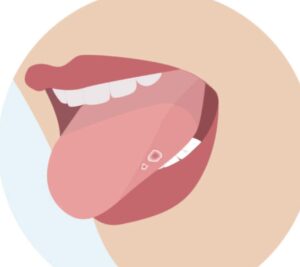
What is dry xerostomia, and how does it affect you? Despite the fact that the average person has never heard of it, they have all dealt with it in one way or another. Basically, it's a euphemistic way of stating, "dry mouth." The inconvenience of having a dry mouth is something that everyone has experienced, but when the dryness persists, it becomes a very irritating problem. Dry mouth occurs when you do not have enough saliva to keep your mouth moist and lubricated, and your mouth becomes parched. Continue reading to learn about some of the causes of dry mouth, as well as some remedies for treating it.
What causes my mouth to be so dry, and how can I avoid it in the future?
If your mouth feels dry no matter what you do, your saliva glands aren't working properly. A variety of variables, including but not limited to the following, might contribute to this situation:
1: Stress or anxiousness are two terms that can be used to describe the same thing.
2: some medications
3: Chemotherapy or radiotherapy are both options.
4: Aging
5: Smoking
6: Sjorgren's syndrome is a kind of chronic fatigue syndrome (autoimmune illness)
Sjorgren’s Syndrome
Illness caused by an immune system reaction Sjorgren's syndrome is characterized by the presence of white blood cells that attack the salivary glands. The only way to deal with dry mouth is to attempt to treat the cause of the condition. Pay close attention to the causes outlined above and consult with your Summerlin dental office about your treatment choices.
Q: What causes dry mouth symptoms, and what are the signs and symptoms of dry mouth?
A: If you continue to have dry mouth, it is likely that your salivary glands are not producing enough saliva. Examine the following signs and symptoms of dry mouth so you'll be aware of what to look out for:
The following are the most common indications and symptoms to be on the lookout for. The earlier you recognize the signs and symptoms of dry mouth, the sooner you may begin treatment for the underlying condition that is causing them.
Q: What Can I Do to Relieve My Dry Mouth Problems?
A: If your prescription medication is causing you to have dry mouth, switching medications is a straightforward option. There are a variety of additional medications available that can aid your salivary glands in increasing their production of saliva. You may also take steps to lower your chances of experiencing dry mouth by doing the following:
Everyone has had dry mouth at some time in their lives, but don't let it interfere with your normal activities. Apply our causes, symptoms, and preventative recommendations to keep your mouth moist and healthy. If you are experiencing any of the symptoms listed above, you should visit your dentist to determine what is causing the issue and how to resolve the situation.
Get to Know the Dentist
Dr. Marianne Cohan was voted The Best Dentist/ Dental Office and Best Cosmetic Dentist from The Las Vegas Review Journal in 2020 and 2021. She received her Doctor of Dental Surgery (DDS) from the State University of New York at Buffalo in 1992.
With an emphasis on cosmetic, complete makeovers and implant dentistry, Dr. Cohan is committed to continuing education and feels that we never stop learning. Dr. Cohan takes pride in using high powered magnification to perform minimally invasive restorative dentistry. She uses all of the latest technological advances including digital radiography, digital photography, computer simulations and high-resolution pictures of proposed treatment on 55-inch screens. She also utilizes CBCT (cone beam) and laser technology. Dr. Cohan is always available to her patients and is available for any dental emergency.
